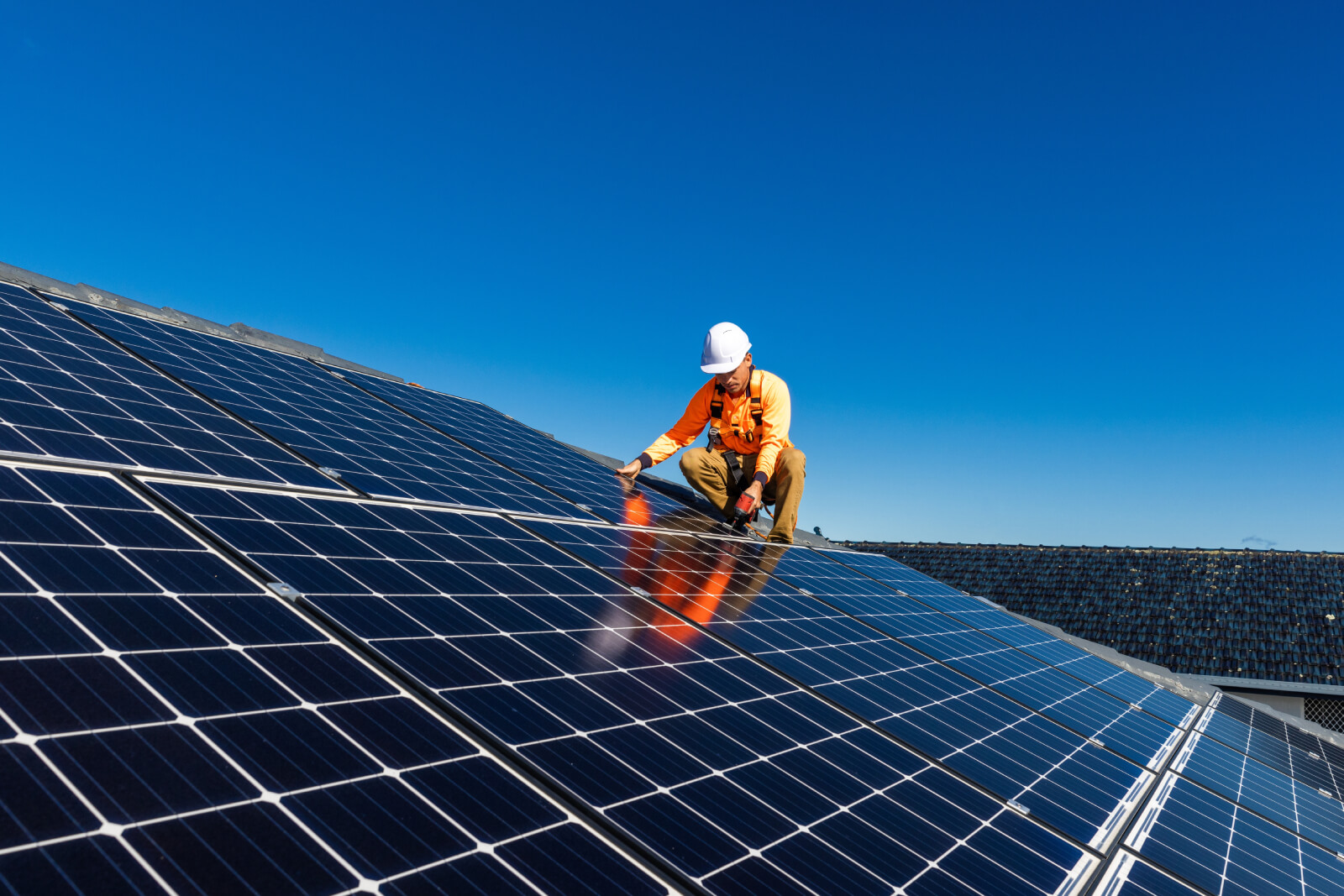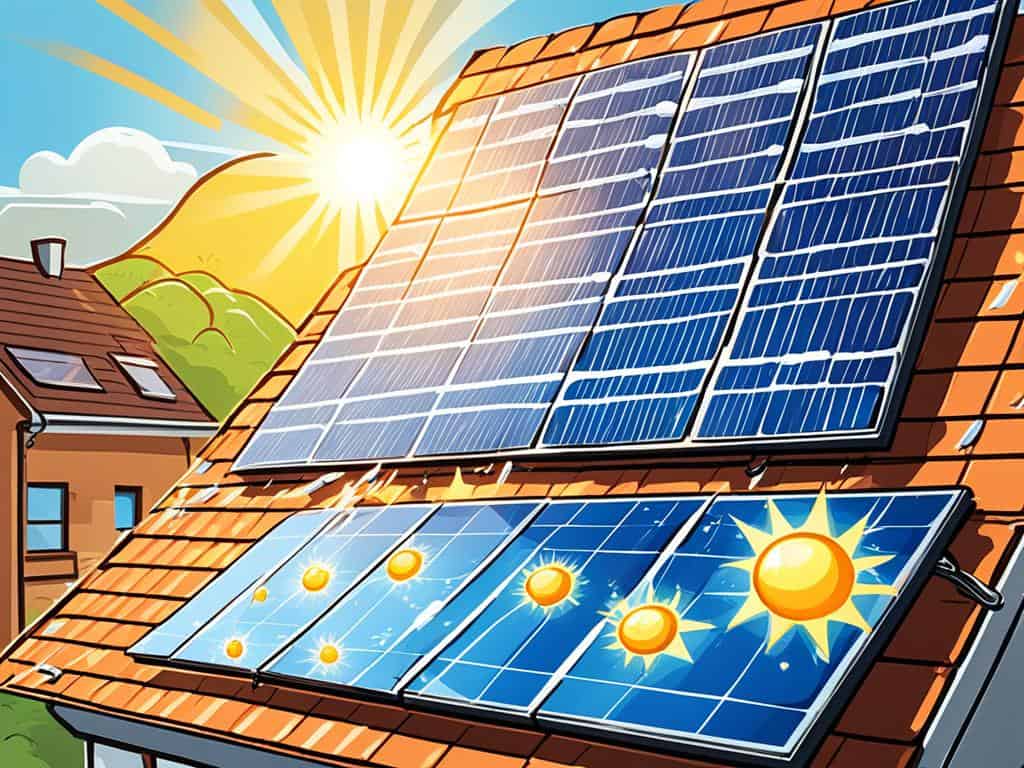Explore the latest technology in clean power with Solar Panels.
Explore the latest technology in clean power with Solar Panels.
Blog Article
The Ultimate Overview to Selecting the very best Solar Panels
Selecting the ideal photovoltaic panels is a complex decision that goes past mere appearances or cost. It involves a mindful analysis of different kinds, consisting of monocrystalline, polycrystalline, and thin-film options, each presenting special benefits and disadvantages. Understanding efficiency scores, expenses, and installment requirements is critical for making an enlightened choice that straightens with your power needs and spending plan. As the landscape of solar innovation remains to evolve, the ramifications of your choice can have enduring impacts-- both economically and ecologically. What elements should you prioritize to make certain optimal performance and sustainability?
Understanding Solar Panel Types

Monocrystalline panels are built from a solitary crystal structure, providing high effectiveness and space-saving benefits. In comparison, polycrystalline panels consist of several crystal frameworks, leading to a slightly lower efficiency price.
Thin-film solar panels are made from a selection of materials, including cadmium telluride and amorphous silicon. They are light-weight and flexible, permitting one-of-a-kind applications, such as combination right into structure products. They often tend to have lower performance prices contrasted to crystalline panels, their installation prices and flexibility can make them an eye-catching option for particular tasks.
Comprehending these types will encourage you to make informed choices based upon your power needs and budget factors to consider.

Assessing Performance Ratings
Reviewing performance rankings is important for selecting photovoltaic panels that align with your energy goals. The effectiveness of a photovoltaic panel indicates the portion of sunlight exchanged usable electrical power. Greater efficiency ratings suggest that panels can create more energy in an offered area, making them especially useful for installations with minimal room.
Standard solar panel performances range from 15% to over 22%. When comparing options, it is necessary to think about the sort of solar modern technology made use of, as monocrystalline panels usually use greater efficiency than polycrystalline panels. Effectiveness is not the single criterion; aspects such as installation orientation, shielding, and neighborhood climate can dramatically affect total efficiency.
Higher efficiency panels might use better returns on financial investment, especially in areas with high electrical power expenses or minimal installment space. It's a good idea to look for panels with a strong performance service warranty, as this can supply extra guarantee of their longevity and performance.
Comparing Costs and Guarantees
Expense and warranty factors to consider are important components in the solar panel choice procedure. When assessing solar panels, the ahead of time cost is a key issue.
Many trusted solar panels come with 2 types of service warranties: performance and product. Efficiency service warranties generally ensure a certain output degree for 25 years, ensuring that the panels will preserve their Full Report performance over time.
When comparing expenses and warranties, consider the long-lasting ramifications of both. A lower-priced panel with a brief warranty might wind up being much more expensive if efficiency declines or repair services are needed sooner than expected. As a result, it's crucial to stabilize preliminary costs with the security provided by robust warranty choices.
Setup Factors To Consider

Next, take into consideration the positioning and tilt of the photovoltaic panels. Ideally, panels ought to be positioned to maximize sunlight direct exposure throughout the day. South-facing setups usually yield the highest power manufacturing, but east and west orientations can likewise be reliable depending upon your energy requires.
In addition, regional building regulations and laws need to be evaluated prior to installment. Permitting demands can differ considerably by location, and conformity is essential to avoid prospective penalties or required eliminations.
Last but not least, employing a qualified professional for setup is crucial (Solar Panels). Experienced installers will ensure that the system is appropriately placed, linked, and certified with all safety standards. This choice can eventually enhance the durability and effectiveness of your solar power system, making it a rewarding investment for your renewable resource needs
Upkeep and Longevity
Appropriate maintenance is important for making sure the longevity and ideal performance of solar panels. Regular assessments and cleaning are critical components of this upkeep regimen. Dirt, debris, and snow build-up can dramatically hinder energy production, so it is a good idea to cleanse straight from the source the panels periodically, ideally every 6 months or after considerable weather condition events.
Furthermore, keeping an eye on the system's performance through a solar internet surveillance application or gadget allows homeowners to determine any kind of decreases in energy output that may show concerns needing focus. It's likewise sensible to look for any type of signs of wear or damages, such as splits in the panels or deterioration in the circuitry. Purchasing high-quality solar panels typically includes longer service warranties, normally ranging from 25 to 30 years, which can work as an indicator of their anticipated longevity.
Routine expert evaluations can even more boost the lifespan of your solar power system, guaranteeing that any possible troubles are attended to quickly (Solar Panels). By adhering to these upkeep techniques, house owners can make the most of not just the performance of their solar panels yet additionally their roi throughout the years, contributing to a lasting power future
Final Thought
In conclusion, picking the optimum solar panels demands a comprehensive assessment of various variables, including panel kinds, performance rankings, prices, and service warranties. Installment considerations and ongoing maintenance play critical roles in ensuring the longevity and efficiency of the solar energy system.
Report this page